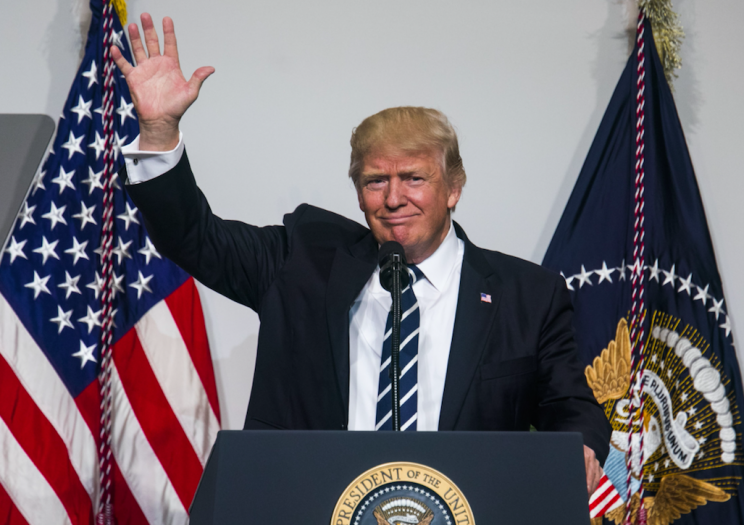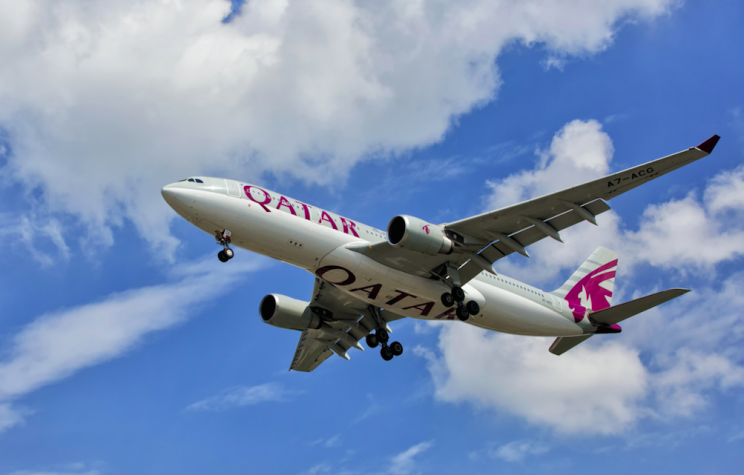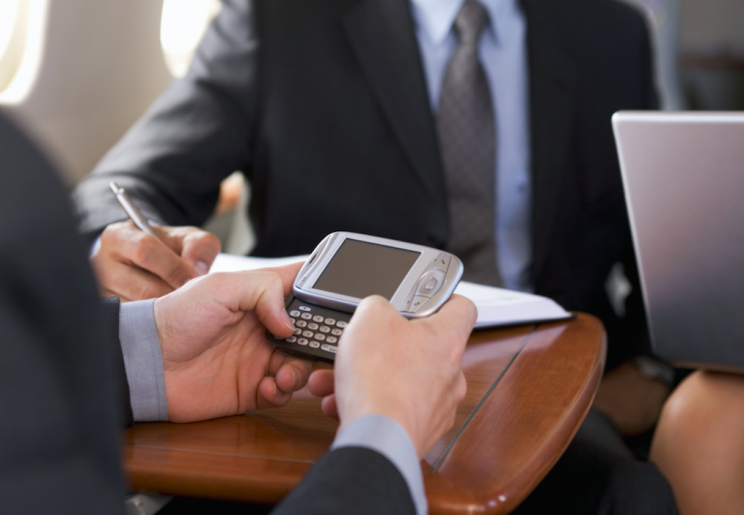Is Donald Trump’s laptop ban more about money than Muslims?

Is Donald Trump’s ban on laptops on planes really about money?
That is the question being posed by travel, security and technology experts after the US president’s controversial move.
There have been suggestions in some quarters that the laptop ban is a retaliatory move by Mr Trump against airlines with power bases in the Middle East.
Experts are divided on whether he wants to protect travellers or move them on to US airlines who won’t be affected by the ban.
MORE: Facebook is rolling out a fact-checking tool in the fight against fake news
MORE: Donald Trump signs law that backs Nasa plans to send people to Mars
Civil liberties groups claim the ban is a further attack on Muslim travellers, following on from Mr Trump’s previous attempts to stop visitors from certain countries entering the US.
The US ban has also been adopted by the UK – both countries have announced new carry-on restrictions that ban laptops on certain flights.
The US ban prohibits passengers on some international flights from mostly Middle Eastern and North African countries from taking laptops, tablets, electronic games and other devices on board in carry-on bags.
Passengers flying direct to the US from 10 airports in eight countries will be allowed only mobile phones in passenger cabins – larger electronic items must be checked in.

The rules took effect on Tuesday, and airlines have until Saturday to implement them or face being barred from flying to the US.
They said the decision was prompted by ‘evaluated intelligence’ about potential threats to planes bound for the US.
The electronics ban affects flights from international airports to the US from Amman, Jordan; Kuwait City, Kuwait; Cairo, Egypt; Istanbul, Turkey; Jeddah and Riyadh, Saudi Arabia; Casablanca, Morocco; Doha, Qatar; and Dubai and Abu Dhabi in the United Arab Emirates.
About 50 flights a day, all on foreign carriers, will be affected.

The UK rules bar passengers taking any phones, laptops or tablets larger than a normal-sized mobile or smartphone into the cabin and will apply to flights from Turkey, Lebanon, Jordan, Egypt, Tunisia and Saudi Arabia.
With the US order affecting flights from predominantly Muslim nations, the ban may invite comparisons to Donald Trump’s orders barring travel from several Muslim-majority-nations, which have been blocked by courts.
Early in his candidacy, Mr Trump called for the barring of Muslims from entering the US.
The travel ban was more severe, separating families and barring students from studying in the US. The laptop ban is more of an inconvenience and its stated reason is to protect the travellers who are affected by it.

However, some travel experts claim Mr Trump may be more interested in protecting US business interests than passengers.
An article in The Washington Post argued that the laptop ban could be a tactical move against airlines such as Emirates, Etihad Airways and Qatar Airways, who have been accused by their American competitors of receiving large subsidies from their respective governments.
Many business travellers could turn to those US airlines if they are not able to bring their devices on board planes operated by competitors in the Middle East.
In December, the big three US airlines – Delta, American and United – urged Mr Trump to help them fight financially against Qatar Airways, Etihad Airways and Emirates.
The laptop ban has also been questioned from a security standpoint.
‘It’s weird, because it doesn’t match a conventional threat model,’ Nicholas Weaver, researcher at the International Computer Science Institute at the University of California, Berkeley, told The Guardian.
‘If you assume the attacker is interested in turning a laptop into a bomb, it would work just as well in the cargo hold. If you’re worried about hacking, a [smartphone] is a computer.’
Bruce Schneier, an American security technologist, also told The Guardian: ‘From a technological perspective, nothing has changed between the last dozen years and today.
‘That is, there are no new technological breakthroughs that make this threat any more serious today.
‘And there is certainly nothing technological that would limit this newfound threat to a handful of Middle Eastern airlines.’

 Yahoo News
Yahoo News 


